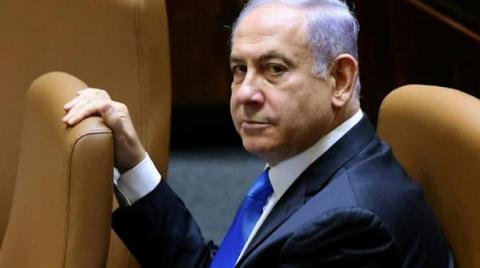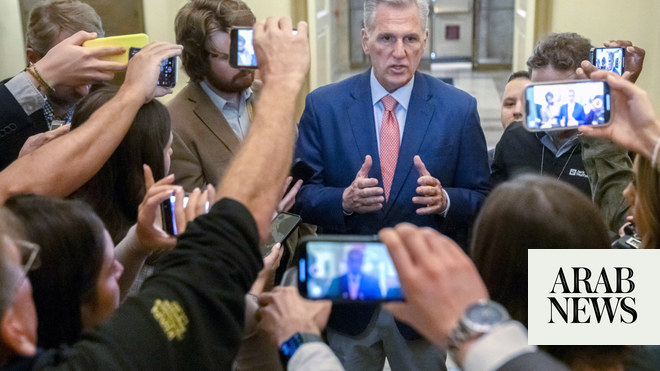
United States President Donald Trump is hosting Saudi Arabia’s powerful Crown Prince Mohammed bin Salman on Tuesday. The visit is critical as it highlights the warmer relationship between the US and Saudi Arabia. Last year, the US president selected Saudi Arabia as the first country to visit in his first overseas trip since taking office.
Crown Prince Mohammed’s visit is part of his first comprehensive foreign trip. American and Saudi leaders can use the opportunity to reaffirm US-Saudi ties, since this year marks the 75th anniversary of the strategic, geopolitical and diplomatic alliance between the two nations.
Iranian leaders fear that one of the topics that will top the agenda is discussing the threat the regime poses to the Middle East. This issue has become more pressing as Iran continues to blatantly violate international laws. Most recently, the United Nations conclusively found that Tehran was behind the illicit supply of weapons to the Houthis in Yemen, in violation of UN Security Council resolution 2216, which imposes an arms embargo on the Houthi rebels, and resolution 2231, which bans the Iranian regime from transferring weapons and advancing its ballistic missile program in specific instancies.
In addition, the regime continues to pose a threat when it comes to its nuclear program because the Iranian leadership does not allow inspectors from the International Atomic Energy Agency (IAEA) to inspect some of its military sites, such as Parchin military base. Several of these sites are believed to be clandestine areas where the regime conducts nuclear research and development. The Islamic Republic is also investing in terrorist and militia groups in Iraq, Syria and Lebanon at a much faster pace than ever before, according to several military generals.
Tehran’s ruling clerics fear the US and Saudi Arabia will take more robust and concrete steps to counter its increasing influence and expansionist policies in the Middle East.
Dr. Majid Rafizadeh
In addition to establishing and enjoying a long-term military presence in Syria, some of the leaders of Iran’s Islamic Revolutionary Guard Corps are emboldened and empowered to such an extent that they are publicly calling for the expansion of their military missions in countries such as Yemen and Palestine, according to Iranian Persian language news outlet Bahar News. Maj. Gen. Mohammad Ali Jafari, the chief commander of the IRGC, boasted recently that setting up, supporting and expanding opposition forces in other countries serves the Islamic Republic’s national and security interests, according to Fars News. All these developments are credible signs that the Iranian regime is brazenly pursuing its imperialistic objectives and militaristic adventurism through the use of hard power.
As a result, the timing of the Saudi Crown Prince’s visit is significant and intriguing. Inside Iran, at this critical time, the strengthening of ties between the US and Saudi Arabia is considered a blow to the leadership.
Iranian leaders fear the convergence of interests, as well as the current powerful alignment of shared geopolitical and strategic interests between the Trump administration and Saudi Arabia. The Iranian regime’s ruling clerics are concerned that the US and Saudi will take more robust and concrete steps in countering its increasing influence and expansionist policies in the region.
It is critical to point out that the Iranian authorities are cognizant of the fact that Washington and Riyadh can confront Tehran’s power if several tangible initiatives and policies are pursued simultaneously. The first one is economic, and would require that the US and Saudi Arabia impose similar financial sanctions on the Iranian regime. But they could also join hands to pressure the international community, including the EU and Arab allies, to financially sanction those Iranian officials and organizations that continue to wreak havoc in the region and violate international norms.
The second policy that Iran fears is linked to soft power. Saudi Arabia enjoys high regard and legitimacy in the Muslim world, while the US also has good ties with a majority of Muslim nations. As a result, they can use their political and economic leverage to call on Muslim countries to isolate the Iranian regime. This can have a significant impact on Iran’s ruling clerics and Supreme Leader Ali Khamenei, who views himself as the leader and savior of the Muslim world.
The third policy is related to hard power. The Iranian regime will not change its destabilizing behavior solely with soft power, diplomatic pressure and verbal condemnations. A powerful united military force is required as a bulwark against Tehran’s militaristic adventures in Syria, Iraq and Yemen.
Finally, Iran fears that Saudi Arabia and the US could take measures to whole-heartedly assist the Iranian people who are disaffected with the regime, as well as support the opposition. Iranian leaders are aware that not only can these steps effectively counter Tehran’s power and increasing influence, but more fundamentally could endanger the hold on power of the ruling mullahs.
Dr. Majid Rafizadeh is a Harvard-educated Iranian-American political scientist. He is a leading expert on Iran and US foreign policy, a businessman and president of the International American Council. He serves on the boards of the Harvard International Review, the Harvard International Relations Council and the US-Middle East Chamber for Commerce and Business. Twitter: @Dr_Rafizadeh











